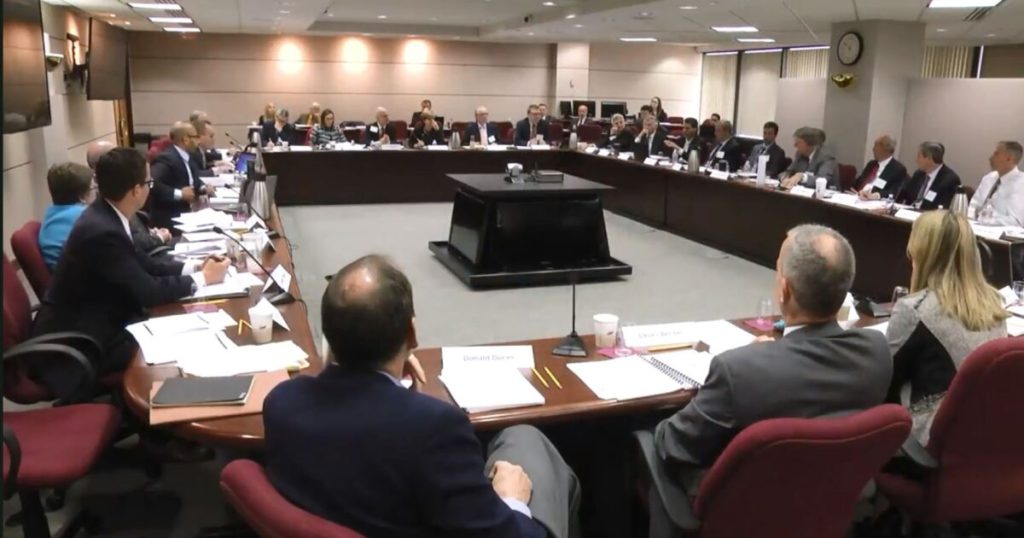FASB narrows digital asset project to focus on crypto


The Financial Accounting Standards Board, at its Aug. 31 meeting, decided to narrow the proposed scope of its digital assets project — formally launched in May — to focus specifically on cryptocurrencies.
The board agreed to five specific criteria for what the yet-to-be-determined guidance covers. To be within the proposed scope, the asset must:
- Meet the GAAP definition of an intangible asset (which excludes financial assets);
- Not provide the asset holder with enforceable rights to, or claims on, underlying goods, services or other assets (such as with a contract);
- Have been created, or resides on, a distributed ledger or “blockchain;”
- Be secured through cryptography; and,
- Be fungible.
FASB practice fellow Sally Bishop said during the meeting that the staff recommended these criteria for several reasons. The intangible asset requirement, she said, would work to exclude things for which there are already guidance, such as securities and fiat currency, which would serve to cut down on confusion and complexity. It also means the board will be able to leverage existing guidance, specifically Topic 350, in its crafting of the digital asset guidance. She also mentioned that requiring the asset be on a blockchain excludes other possible assets like software, media or data, which staff felt would muddle the issue. Finally, by requiring that the asset be fungible, the board does not need to consider nonfungible tokens, which is still a very new market and does not yet demand attention.
Board member Marsha Hunt, in supporting the proposed scope, said that it will help FASB zero in on what’s actually important when it comes to measurement of these assets.
“While some might feel it limits the scope or what we talk about, I think it helps us define what will be an operable level as we move on and think of the other important aspects of what the standard in total would include,” she said.
Many on the board said that, since the scope has been narrowed to focus specifically on cryptocurrencies versus all digital assets — which is an extremely broad category — the project and eventual guidance should also be renamed. Board member Christine Botosan, as just one example, said the old name was fine before they had a proper scoping, but now it needs to be more precise so people know what it is they’re talking about as they discuss cryptocurrencies.
“I understand why we called this ‘digital assets’ up to this point because we didn’t have a scope. We now have a scope … and our intent is to narrow the scope to crypto assets, a more common term that can be used to apply to the types of thing we’re hoping to capture. I think at this point in the process, we can agree that, now, we need to be more careful about the words we use. I would rename this project ‘Accounting for Disclosure of Crypto Assets,'” she said.
With a proposed scope now approved, the board shall now work on the second part of the project, measurement. Once that is complete, the board will release a full exposure draft for public comment.

